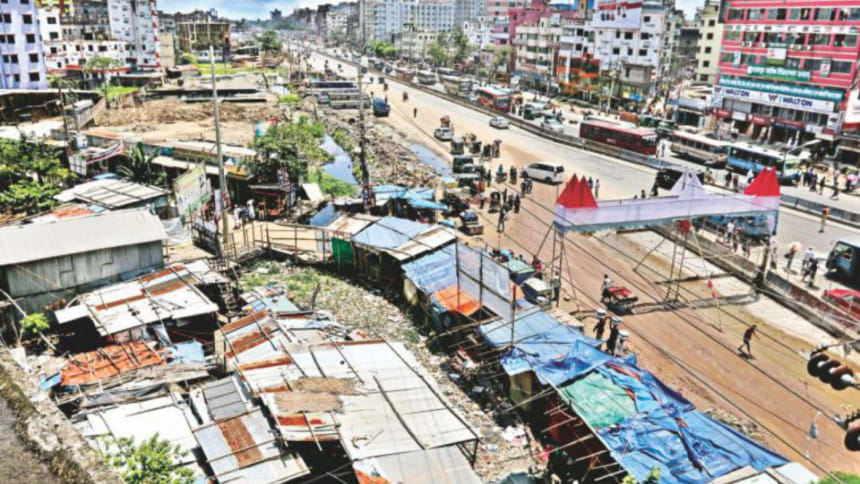Good, if we get rid of our hiccups

The United Nations unveiled its World Economic Situation and Prospects 2018 report on December 14. According to it, the global economy is showing signs of strengthening after a long inertia of nearly a decade, since the great financial meltdown of 2008. While global economic growth is slated to have grown by nearly three percent, a number of least developed countries are showing strong growth.
East and South Asia are emerging as dynamic regions. As we move to Bangladesh, the signs are positive despite variables being there to upset this growth. Indeed the forecast for Bangladesh's GDP growth stands at 7.1 percent in 2018 and 7.2 percent in 2019. These forecasts are, however, not without caveats.
We have to remember that Bangladesh could be doing much, much better if policymakers were able to bulldoze policy reforms that would act as game-changers in a number of key areas. As the report has highlighted, two of the biggest problems (in countries like Bangladesh) are unwieldy decision-making process in key institutions and lack of capacity in such institutions. The existing red-tape culture results in slowing down, sometimes to a snail's pace, the making of decisions, and the implementation of those decisions. The other issue that has become a major sticking point is lack of capacity of various institutions. If we take the case of the plethora of Memorandums of Understanding (MoUs) signed between the two heads of state of Bangladesh and China (and/or their delegates) more than a year ago and then practically nothing beyond, we begin to understand the problem. Again, the multiple lines of credit taken from India remain to a great extent under or unutilised for the same reasons.
The country has done relatively well despite hiccups. Areas where we have not done too well are, of course, mobilising domestic investment and addressing the volatility in the financial sector, particularly banking. Weak regulatory mechanisms coupled with a general lack of political will to stamp out irregularities that have become all-pervasive in handing out bad loans (over the years) and the failure to recover billions of dollars loaned out to companies that were hardly credit-worthy have bled the economy.
While policymakers turned a near blind eye to what was happening in the state-owned banking sector, the rot, it would appear, is now threatening to consume the privately owned banks too. We have policies that are supposed to combat irregularities in the financial sector, but the central bank has remained largely a spectator in the last few scams that have rocked the very foundations of the banking sector. These are policy failures that have to be addressed if we wish to maintain some semblance of order in the area of finance.
Foreign investment alone cannot bring the economic dividends for Bangladesh. We need to introduce policy measures to boost domestic investment. Yes, indicators do suggest that is picking up, but again, we are hamstrung by other factors. Much of the global growth is based on the premise of developed nations backing trade agreements and a general pro-trade scenario across continents. That scenario is now being questioned, especially with the rise of protectionist policies being talked about in the US.
The bulk of our export comes from one sector, i.e. readymade (RMG) apparels and the two biggest markets are the EU and the US. We have been talking endlessly over the last decade or more that our economy needs to diversify, and not just in terms of production but also exploring new export markets. That unfortunately has not panned out for our economy, and the onus lies with the policymakers, period. Our overdependence on two major trading partners leaves us exposed to changes in policy over there.
The report highlights "more rapid progress in many of the LDCs is hindered by institutional deficiencies, inadequate basic infrastructure, high levels of exposure to weather-related shocks and natural disasters, as well as challenges related to security and political uncertainty." While finance has been forthcoming, efficiency unfortunately has not, at least in our case. And when we talk about institutional efficiency, we have miles to go before we sleep. One of the biggest problems that have emerged is professionalism in the bureaucracy. And that is hardly surprising, given the general tendency to fill crucial positions with "loyal" personnel, who may not always be "efficient" personnel. Over the past few years, media reports have highlighted the problem of our lack of capacity to negotiate favourable terms of agreement—whether it is availing finance or signing contracts with overseas companies that had been awarded deals to build infrastructure.
From what has been published in media over the last year or so, it would appear that our negotiating teams are more concerned with foreign trips as a means to go sightseeing or shopping for that matter. Apparently, one such team went to a European country and decided to visit the holy land for pilgrimage, something that went beyond the official itinerary, but was accommodated for the sake of friendship between our two great countries. All these trips are of course borne by taxpayers' money and given our interest in matters that have nothing to do with signing of contracts, it is hardly surprising that the country ends up with bad contracts.
All major impediments highlighted can be addressed if there is seriousness at the policy level. Bangladesh is on track with policy reforms except the fact that we seem to have a major problem with placing the right person for the right job in the right place. That is perhaps why we have years of delays in implementing mega projects and why project directors change multiple times over the duration of the project. Our enthusiasm with expending funds for "trips abroad" and buying luxury SUVs (and whatnot) outstrips the need to get a move on sticking to project timelines. We actually have our work cut out. It is up to policymakers to decide if we should be happy with this rate of growth or if we should be going for something significantly better.
Syed Mansur Hashim is Assistant Editor, The Daily Star.

 For all latest news, follow The Daily Star's Google News channel.
For all latest news, follow The Daily Star's Google News channel. 



Comments